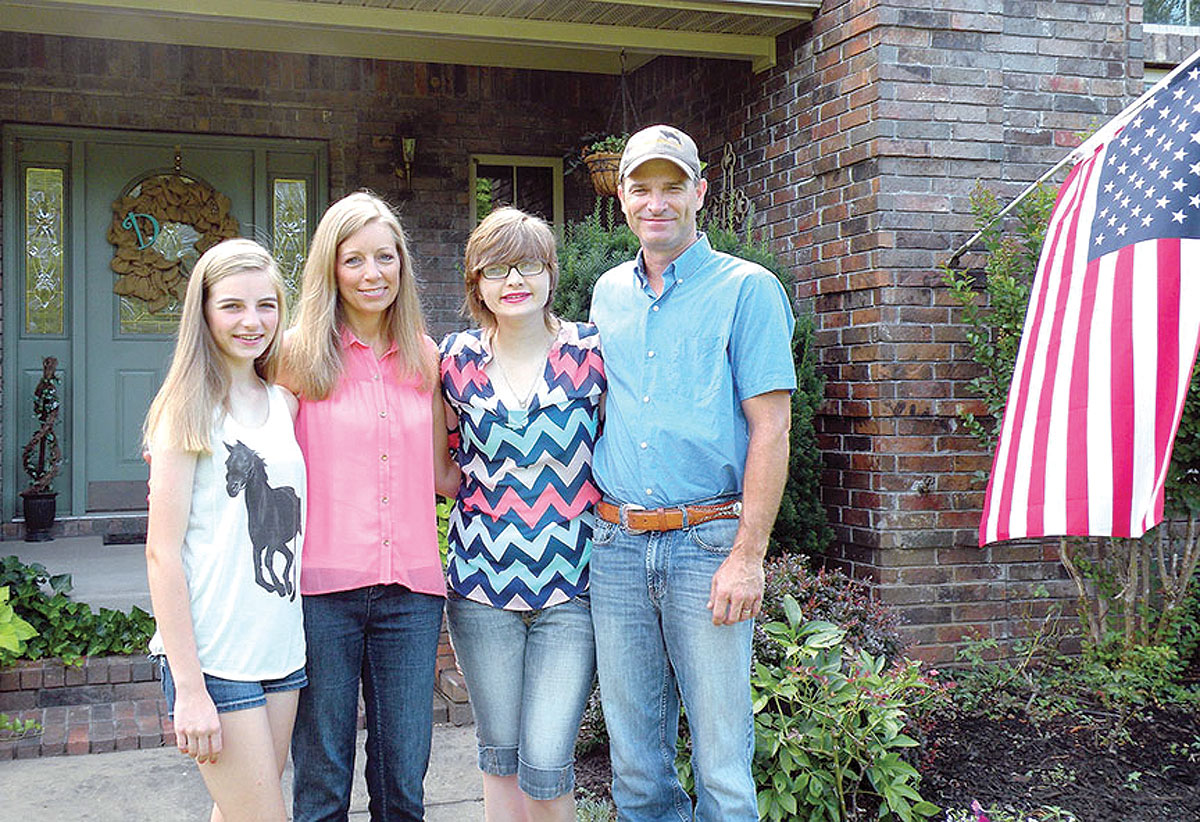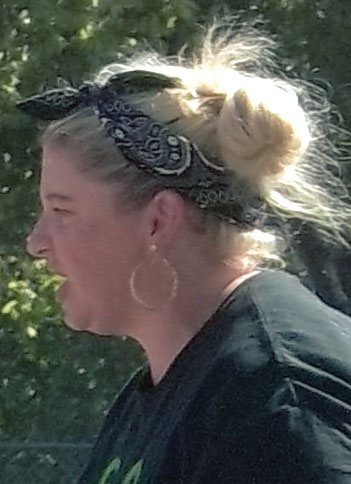
Mike and Kim Dickey are determined for their farming operation to be profitable
For Mike and Kim Dickey of Greenbrier, Ark., making a profit on their farm operation was never an option. It was a necessity.
“We never intended for our off-farm income to subsidize the farm,” Mike explained. “We made up ours minds early on we were not going to do that. I want my farm to make money.”
Neither Mike nor Kim have strayed far from home. Their current farm adjoins Mike’s parents’ property. Mike grew up in Greenbrier, graduated Greenbrier High School, and graduated from the University of Central Arkansas in Conway. Kim grew up a short distance away in the small community of Naylor, Ark., graduated from Mount Vernon High School and graduated from UCA also. Both teach off the farm. Mike is a special education teacher at the Human Development Center in Conway (soon to retire) and Kim has taught for 23 years at Greenbrier Junior High. Both sets of parents were farmers, so it came naturally to Mike and Kim. They have two daughters, Melanie is 20, and Madison is 15. M & K Farms is located east of Greenbrier in Faulkner County. The current operation covers approximately 400 acres of pasture land. They own 17 acres and lease the remainder from Mike’s parents. While they have always had cattle, in recent years they have diversified into Katahdin sheep, chickens, rabbits and most recently a few goats, which were added to help train the new sheep dogs. The cattle are mostly mixed breed cattle, bred with Angus bulls. The Dickey’s sheep herd has 60 head of momma sheep and 80 younger ewes. As a rodeo roper from way back, Mike still breaks a few horses every year and a few family horses are kept on the farm.
Kadahtin sheep were chosen for a few good reasons. Number one they are wool-less sheep. They may have a wool coat temporarily, but they will scratch and rub that off. Wool mats can be seen on trees, bushes all over the pasture. In addition, the sheep have a very even temperament, are excellent grazers and provide excellent fertilizer to the pastures. The Dickeys sell their sheep through the markets in Salem and Beebe, Ark., as well as private treaty to folks wanting to start their sheep herds.
M & K Farms also provides sheep for several ethnic markets in Arkansas. For the Dickeys, they realize more money in the sheep, there are never any “crazy sheep” that try to run over and hurt someone, and they produce three crops every two years. After visiting Mike’s cousin’s cattle and sheep farm in north Arkansas and seeing his success, the Dickey’s decided they would diversify into sheep. It has been a profitable decision.
There is one problem with the sheep however, coyotes. Lambs are easy targets for the natural predators. The Dickeys have bought a couple new sheep dogs and have been working with them to increase their “protection demeanor.”
“We have lost probably 15 or 16 baby sheep in the last year,” said Kim. “Coyotes are brave; I’ve seen them in my yard late at night. Hopefully we can get our dogs trained better to cut down on the losses.”
The Dickeys are practitioners of rotational grazing and implement several NRCS conservation practices. It has taken a few years, but farm is now close to maximizing its potential. Several water tanks have been installed over the farm, which keeps the cattle out of the creeks and ponds thereby reducing erosion.
“What we are doing goes against conventional cattle production,” Mike said. “A lot of people are hung up on maximizing weight gain and doing it quick. When you think about it, we are trying to practice what we think God intended. It takes pressure off the land, we let our land rest, we don’t over farm it and it is all natural. It may not look as pretty as some farms, but it sure works for us. Our fertilizer costs are reduced, and our equipment cost and maintenance are drastically reduced. Bottom line, we make money, that’s what counts.”






